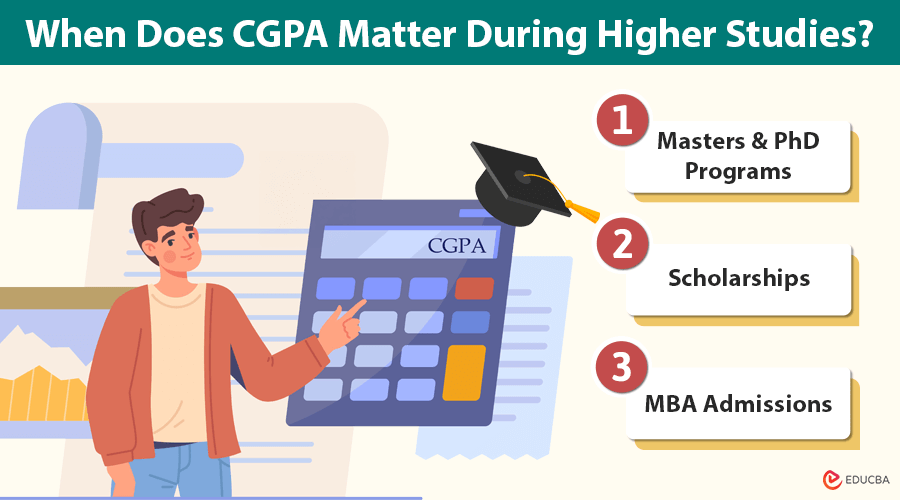
Introduction
Let’s be honest, college students often treat their CGPA (Cumulative Grade Point Average) like the ultimate scoreboard of success. But does CGPA matter when it comes to landing dream jobs or getting into Ivy League schools? Or is it just another number that loses relevance once the real world takes over? Buckle up because we are about to dive deep into the great CGPA debate and settle it once and for all! By the way, if you have ever panicked because a job application asked for a percentage instead of a CGPA, here is a quick fix: multiply your CGPA by 9.5 (for a 10-point scale) or use a CGPA to Percentage calculator. Now, stop sweating and get back to wondering whether your grades matter.
Does CGPA Matter in Job Placements?
1. The First Job: The Great CGPA Filter
Fresh out of college with zero work experience? Recruiters love using CGPA as an easy sorting mechanism. When hundreds of resumes flood in for a handful of roles, a high CGPA is like a shiny badge that says, “I can memorize things and meet deadlines!”
But here is the plot twist: once you are in the interview room, your CGPA becomes as relevant as your middle school poetry grades. Suddenly, it is all about how well you explain your projects, handle tricky questions, and convince them you would not hide in the bathroom during team meetings. So yes, a good CGPA might open the door, but your personality and skills decide whether you get to stay for coffee.
2. Beyond the First Job: Experience Takes the Wheel
Fast forward a few years into your career. You are switching jobs, and the recruiter asks for your CGPA. At this point, you might as well say, “I don’t know, but here is what I have achieved since then.” Unless you are in academia or research, your work experience, leadership roles, and LinkedIn recommendations will matter far more than that one semester you aced Thermodynamics.
3. Corporate vs Startup Mindset
Big corporations, especially in finance or consulting, might still glance at your grades like a suspicious aunt at a family reunion. Startups, on the other hand, could not care less. They would rather see your coding projects, marketing campaigns, or the time you sold custom T-shirts online. Moral of the story? If your CGPA is not stellar, aim for companies that value skills over report cards.
When Does CGPA Matter During Higher Studies?
1. Masters and PhD Programs: The Academic Gatekeepers
If you are aiming for higher education, your CGPA instantly becomes the star of the show. Top universities treat it like a crystal ball, using it to predict whether you can handle their intense coursework. A low CGPA is not necessarily a death sentence; strong recommendation letters, research experience, or a compelling personal statement can save the day. Pro tip: Some universities have a CGPA cutoff (usually around 7.0 or higher). If you are below that, consider boosting your profile with additional courses or taking entrance exams like the GRE or GMAT.
2. Scholarships: The CGPA Hook
Want someone else to pay for your education? A high CGPA can be your golden ticket! Many scholarships and grants favor students with top academic records. So, if funding your education sounds better than emptying your wallet, maybe think twice before snoozing through that 8 AM lecture.
3. MBA Admissions: The CGPA Plot Twist
For MBA aspirants, CGPA is just one piece of the puzzle. Your CAT/GMAT score, work experience, and extracurriculars often carry more weight. So, if your grades are not perfect, focus on crushing those entrance exams and proving you are more than just a textbook warrior.
When CGPA Does Not Matter (Much)
1. Skill-Based Fields: Tech, Design, and Creative Roles
In industries like software development, graphic design, or content creation, your portfolio speaks louder than grades. Nobody ever rejected a brilliant programmer because they had a 6.5 CGPA unless they also wrote their code in Comic Sans.
2. Entrepreneurship: Who’s Grading You Now?
Ever seen a startup founder’s pitch deck include their college transcript? Exactly. If you are building your own business, your ability to innovate, sell, and execute matters infinitely more than a number from four years ago.
3. Networking: The Secret Shortcut
Sometimes, it is not what you know but who you know. A strong professional network can unlock opportunities that even a flawless 9.5 CGPA never could. So, while you are stressing over grades, do not forget to make friends, preferably the kind who might hire you one day.
Final Verdict: Should You Worry About CGPA?
Yes, if
- You are applying for your first job in a traditional industry.
- You are targeting competitive higher education programs.
- Scholarships or funding are a priority.
No, if
- You are in a skill-driven field (coding, design, marketing).
- You have solid work experience or a killer portfolio.
- Creating a legacy of your own.
Conclusion
Aim for a decent CGPA, but do not let it become your entire personality. Grades are just one chapter in your career story, not the whole book. Whether it is job placements or higher studies, skills, persistence, and a little charm will take you further than a perfect 10.0 ever could. Now go forth, and may your career be as bright as your GPA (or brighter, even if your GPA is not).
Recommended Articles
We hope this guide on does CGPA matter has given you valuable insights. Check out these recommended articles for more perspectives on career growth, higher education, and skill-based success:

